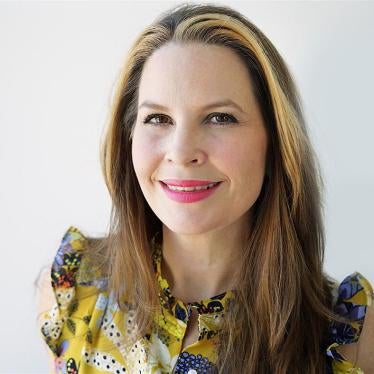A 34-year-old Vietnamese doctor and businessman, Pham Hong Son, was arrested in Vietnam in 2002 for a cyber offense. His crime? He had translated an article from the Web site of the American Embassy in Hanoi titled 'What is Democracy?' He e-mailed the article to friends and to senior Vietnamese government officials. He urged in an open letter to the head of the Vietnamese Communist Party that the country was ripe for democracy.
Apparently not. Pham Hong Son was charged with espionage, accused of 'collecting and dispatching news and documents for a foreign country to be used against the Socialist State of Vietnam.' After a half-day trial in Hanoi in June 2003, he was sentenced to 13 years. International reporters and diplomatic observers were barred from attending his trial and appeal, where his sentence was reduced to five years plus an additional three years of house arrest.
Prime Minister Phan Van Khai this week became the first Vietnamese leader to visit America since the end of the Vietnam War. His country is undergoing a transition from a wholly command economy to a 'socialist-oriented market economy.' Mr. Khai is on a corporate-recruiting road show, with some 200 members of his entourage--practically the entire Vietnamese Communist Party food chain--in tow. His delegation is crisscrossing the country, from Seattle to New York, where he will ring the opening bell at the New York Stock Exchange this morning. For most Americans, this may seem to be a long way from typical Communist Party activity, but back in Vietnam, the welcome economic liberalization has not been accompanied by human rights improvements. Instead, today, hundreds of religious and political prisoners remain behind bars.
Despite high-profile meetings this week with Bill Gates of Microsoft and a major deal Vietnam has just announced with Intel, Hanoi blocks Web sites considered objectionable or politically sensitive. Indeed, in 2004 the Ministry of Public Security created a new office to monitor the Internet for 'criminal' content, a measure aimed in part at intimidating people from circulating any information that authorities could deem to be a 'state secret' or otherwise unauthorized.
Software CEOs and other business leaders would do well to remember that the number of cyber-dissidents in Vietnam has grown in recent years, as ordinary Vietnamese try to use the Internet to air their aspirations for basic rights and freedoms. Defending human rights and establishing a robust business relationship with Vietnam is not mutually exclusive. Instead, the rule of law, basic human rights protections, and a free flow of financial information will be essential to long-term commercial success in countries like Vietnam.
President Bush has raised expectations with his global call for democracy and more open societies. But even as he sat down Tuesday with Mr. Khai, Pham Hong Son and hundreds of other dissidents in Vietnam were in jail simply for advocating democratic reforms, practicing their religion, or using the Internet to disseminate proposals for human rights and religious freedom.
This week's visit by the Hanoi entourage is thus an excellent test of the administration¹s willingness to press countries such as Vietnam to uphold basic rights and freedoms.
Unfortunately, the State Department has failed that test. At a congressional hearing called by Rep. Christopher Smith to discuss Khai's visit on Monday, the State Department declined to send a representative to testify about basic human rights violations in Vietnam--until after the prime minister's American tour is over. This despite the State Department¹s own annual global human rights survey making clear that there is little press, political, or religious freedom in Vietnam. Last year, America designated Vietnam a 'Country of Particular Concern' for its violations of religious freedom--diplospeak that Vietnam ranks among the world¹s very worst for religious repression. The State Department's disappearing act this week does not bode well for a bilateral relationship based on a frank dialogue about needed human rights improvements.
America has a special relationship with Vietnam, which has decided a generation after war that capitalism was the right course after all. But markets cannot long thrive where human rights abuses are swept under the carpet and the rule of law is absent. During--and most importantly, after--Mr. Khai's tour, top American political and business leaders must be prepared to frankly point out Vietnam's perfectly obvious violations of basic rights and freedoms. President Bush has rightly made enlarging freedom and supporting dissidents a core principle of his second term.
But countries like Vietnam--part of the Asian cycle of economic freedom with lagging political freedom--should not be given a free pass to repress at home while courting the American market abroad.
Minky Worden is Media Director at Human Rights Watch.





